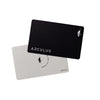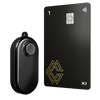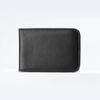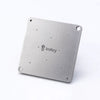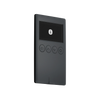
The craft of composing text goes beyond just arranging words; it involves intricacy and vibrancy. Intricacy adds depth, while vibrancy introduces rhythm. The fusion of both yields a captivating narrative. Let's delve into the provided content on selecting a cryptocurrency wallet, embracing complexity and dynamism within a formal context.
Interpreting Digital Currency Wallets
The number of digital wallets that are available has increased significantly in the vast realm of virtual currency. The distinction between a hardware wallet and software wallet may be confusing to individuals who are not familiar with the market. This thorough explanation seeks to make sense of the spectrum so you may make decisions that suit your needs.
How to Interpret the Code for a Cryptocurrency Wallet
A bitcoin wallet serves as a secure repository for protecting your digital assets. There are two primary types of vaults: hardware wallets, which operate offline, and software wallets, which operate online.
It is important to note that these wallets do not hold your physical cryptocurrency. However, they possess the cryptographic keys that grant access to your assets on the blockchain. These keys are like secret passwords that allow you to manage your funds.
Understanding Cryptocurrency Wallet Functions
Think of a cryptocurrency wallet as a secure container for your digital coins. You can store them, send them, and check your balance. There's a variety of wallets out there, each with unique features.
One of the perks? You're in control. Unlike traditional banks, you're the decision-maker here. No freezing of accounts or interference with your funds.
How Cryptocurrency Wallets Operate
Imagine your wallet as a lockbox and the key as your private code. This code is your ticket to accessing your crypto treasures in the blockchain. When you send or receive coins, the blockchain records it. Your wallet interacts with the blockchain, updating your balance and transactions in real time.
However, even the strongest armor has chinks. So, play it safe: choose a reputable wallet provider, enable two-factor authentication, and stay vigilant against potential threats.
Diverse Wallet Types
Now, let's explore the two primary wallet types: hard and soft.
A hard wallet is like a fortified vault. It's a physical device that stores your assets offline. On the other hand, a soft wallet is a software application that operates online. While hardware wallets are more secure, software wallets offer convenience.
Meet the Wallet Stars
Take a look at Exodus – it's like a stylish friend who's great at currency swaps. Jaxx is another soft wallet, supporting over 80 cryptocurrencies. MyEtherWallet is perfect for Ethereum enthusiasts.
Hard Wallet vs. Soft Wallet – The Decision
Think about what's most important to you when picking between a hardware wallet and a software wallet. Keeping a large amount of cryptocurrency? Choose the one with metal. Need quick access to do your daily business? A software wallet suits better. Remember, your choice hinges on factors like cost, accessibility, and personal preferences.
Choosing the appropriate wallet can be difficult, particularly for newcomers. Consider the following important points:
- Security: Give preference to wallets that have robust security measures, including frequent upgrades and two-factor authentication. Make sure the wallet is compatible with the cryptocurrency you intend to store. A fantastic way to diversify your holdings is to use wallets that handle various coins.
- User Experience: Managing your assets is easier with an intuitive UI. Look for wallets with easy navigation and helpful features.
- Backup and Recovery: Choose a wallet that offers backup options. If you lose access, you'll need a recovery option.
Popular Hard Wallets
Below are some of the popular hardware wallets on the market:
- Ledger Nano Series: The Ledger Nano series is a popular hard wallet that supports over 1,500 cryptocurrencies. It's user-friendly and has a backup seed phrase for recovery. These wallets are known for their security features, ease of use, and built-in screen to verify transactions.
- Trezor Wallets: Trezor wallets have an added layer of protection, it comes with an open-source password manager feature.
- KeepKey Wallet: KeepKey can be compared to a unique lockbox for your cryptocurrency. It is a physical gadget designed to ensure the safety of your cryptocurrency holdings. Over 50 cryptocurrencies are supported by it.


